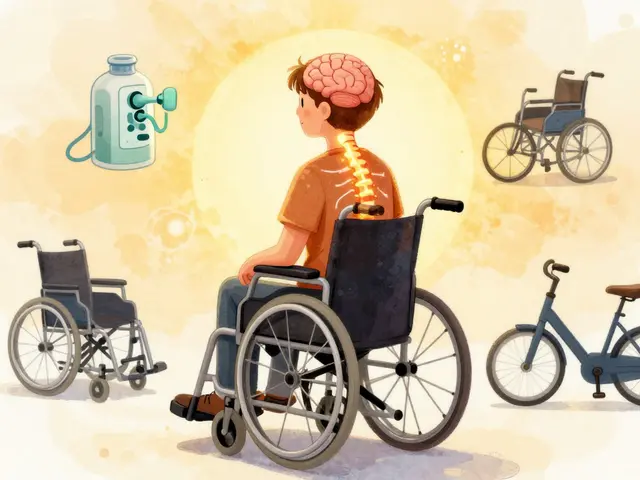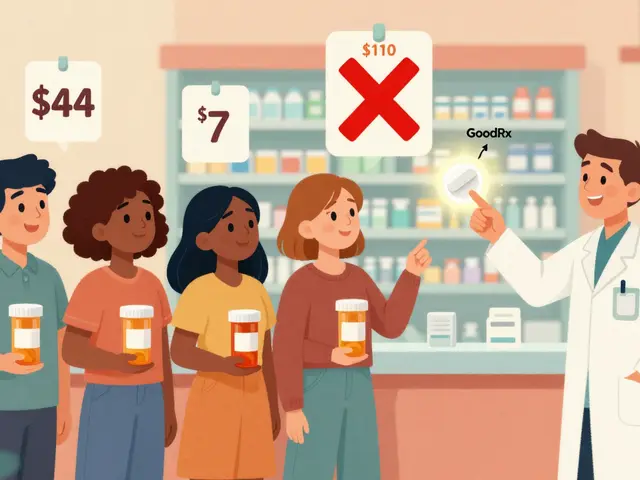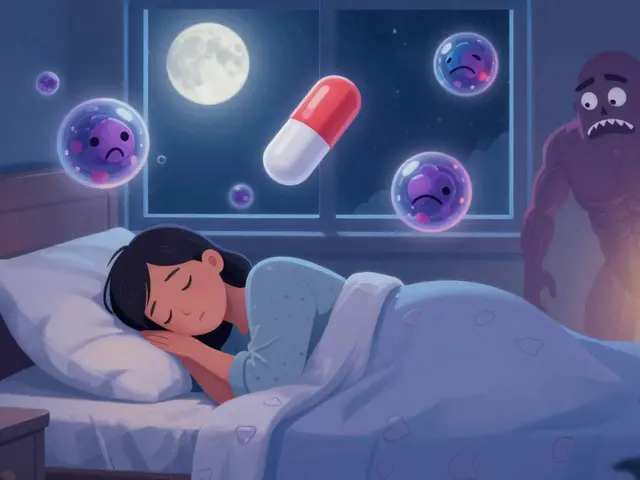Early detection: catch small problems before they get big
Missing early signs can turn a fixable issue into a long road of treatment. You don’t need medical training to notice change — you just need a system. This page groups practical ways to spot health problems earlier, based on common screenings and everyday checks that really help.
Practical early detection steps you can use today
Start simple: track. Keep a short log of new symptoms, sleep, mood, and any meds you take. A week of notes often makes patterns obvious — for example, a new cough after starting a drug, or memory slips that become more frequent. Measure basic vitals at home: blood pressure, resting pulse, weight. These numbers create a baseline so you notice shifts.
Follow screening basics by age and risk: routine blood pressure checks, cholesterol and blood sugar tests, and age-appropriate cancer screens. Guidelines vary by country and personal risk, so use them as a starting point and talk to your clinician about timing. If you have family history — like early heart disease, cancer, or dementia — get earlier or more frequent checks.
Learn the red flags for common conditions. New chest pain, sudden shortness of breath, fainting, or severe abdominal pain need immediate care. For dementia or cognitive decline, watch for repeated questions, getting lost in familiar places, or sudden personality changes. If meds cause dizziness, confusion, or weakness, review them with a pharmacist or doctor — some drugs raise fall or electrolyte risk in older adults.
How to act when something looks off
Don’t guess. Bring your notes and recent numbers to your appointment. Ask for targeted tests that match your concern — a simple urine test, blood panel, ECG, or cognitive screen can rule in or out many problems quickly. If tests are normal but you still feel different, ask for follow-up plans instead of being reassured and sent home without a next step.
Use telehealth for quick checks when appropriate. Video visits work well for new rashes, persistent coughs, medication side effects, or mental health changes. For urgent or severe signs — intense chest pain, sudden weakness, trouble breathing, or loss of consciousness — go to emergency care right away.
Finally, be your own advocate. Second opinions are fine. If an online article or pharmacy review raises a concern about a medicine or treatment, bring that up and ask how it applies to you. Early detection is partly about timing and partly about persistence: notice changes, document them, and push for answers until you have a clear plan.
Use the articles under this tag to learn specifics — from detecting early dementia signs to medication safety and screening options. When you act early, you keep more options open and often reduce treatment time and stress. That’s the real benefit of spotting things sooner.
Latest Posts
Popular Posts
-
 Duloxetine and Liver Health: What You Need to Know About Hepatotoxicity Risk
Duloxetine and Liver Health: What You Need to Know About Hepatotoxicity Risk
-
 Spinal Cord Injury: Understanding Function Loss, Rehabilitation, and Assistive Devices
Spinal Cord Injury: Understanding Function Loss, Rehabilitation, and Assistive Devices
-
 Accidental Pediatric Medication Overdose: How to Prevent It and What to Do If It Happens
Accidental Pediatric Medication Overdose: How to Prevent It and What to Do If It Happens
-
 Out-of-Pocket Costs: How Generics Cut Your Drug Bills - and When They Still Hurt
Out-of-Pocket Costs: How Generics Cut Your Drug Bills - and When They Still Hurt
-
 Enteral Feeding Tube Medication Safety: Compatibility and Flushing Protocols Explained
Enteral Feeding Tube Medication Safety: Compatibility and Flushing Protocols Explained



